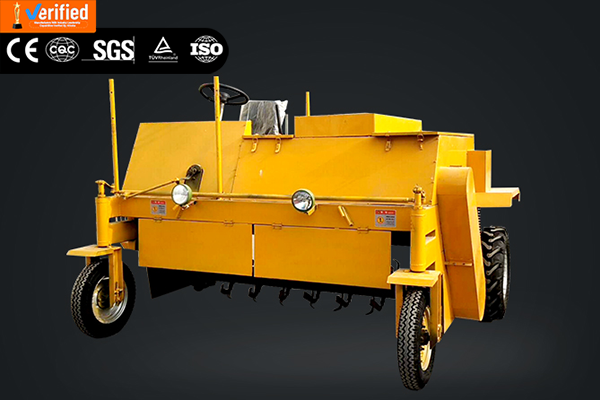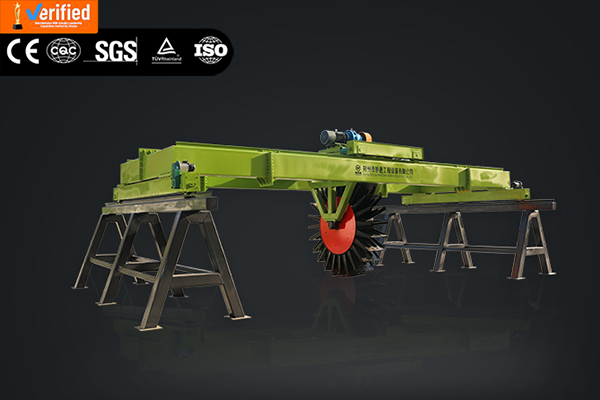Compost - important organic fertilizer. It has a significant impact on the improvement of soil structure, increasing soil fertility and plant growth stimulation. High -quality Equipment for composting It will help you Produce high -quality compost. However, the quality of compost is affected by many factors, which directly affect the final effect of compost.
Get an individual solution !The content of organic substances
Organic substances are important factor in survival and propagation of microorganisms. With rapid high -temperature mechanical composting, the main issue is the balance between heat and temperature. According to research, The right content of organic substances in compost is from 20% to 80%. When the content of organic substances in compost is less 20%. Warm, released during composting, it will not be enough to increase the temperature in the layer of compost. The decomposition rate will be very slow, And the harmless compost effect will not be achieved. When the content of organic substances exceeds 80%. Excessive content of organic substances will affect ventilation and nutrition during the composting process. Creates anaerobic and smelly air.
Compost temperature
The temperature is an important factor in successful composting. The main role of temperature is the effect on the growth of microorganisms. In the process of composting, microorganisms split organic substances and release heat. This advantage is used by rapid aerobic high -temperature composting. In the early stages of composting, mesophilic bacteria will be very active and propagated in large quantities. After the action of mesophilic bacteria, the temperature of compost can achieve the ideal temperature of high -temperature bacteria for several days. And keep the temperature 50-60 ℃. Under such temperature conditions, ordinary compost requires only about a week, to destroy parasite eggs, pathogenic bacteria and t. e. In compost. Achieve harmless standards.
Moisture
Moisture content is also important factor with compost. Moisture is understood to mean moisture content in the entire compost heap. When the humidity of the compost exceeds 70%, It becomes difficult to increase the temperature. This leads to slow microbial decomposition. Too much moisture in compost will complicate ventilation and lead to an oxygenic state. This not only does not contribute to the growth and reproduction of microorganisms, but also makes an unpleasant odor. When water content below 40% The metabolism of microorganisms slows down or even stops. Many data show, that the most suitable for you is the initial humidity of the compost from 50 to 65%. Since in this range it contributes to the decomposition of organic substances by microorganisms.
Ventilation
Aeration conditions are also an important factor in aerobic rapid composting. It is closely related to humidity and temperature regime and affects them. If the moisture content is too large, It will be difficult to raise the temperature, what will affect ventilation. Too low humidity will lead to too low temperature, which will complicate the decomposition of organic substances. Temperature control depends on ventilation. Therefore, for rapid high -temperature mechanized composting, composter is necessary. At the early stages of composting, aeration is intended mainly to provide oxygen with aerobic microorganisms. Used to grow and propagate microorganisms and decompose organic substances. At the middle and late stages of composting, as the mechanical equipment is overturned, the volume of aeration is increased. Moisture and the body of the piles will respectively decrease, And it will be Complete decomposition has been achieved. Become organic fertilizer of the corresponding quality.
Relationship C/N
The ratio of carbon-Azot is the ratio of carbon-apot compost raw materials and additives, That is, mixed materials. It depends on the temperature of the compost during the composting process. When raw materials have a high ratio of carbon and nitrogen, It contains more carbon and less nitrogen. It will slow down the growth and propagation of microorganisms and will affect the decomposition of organic substances. Set aside the composting time. When the ratio of carbon and nitrogen is low, Compost raw materials contain less carbon consumed, which leads to large loss of nitrogen during evaporation. It also selects the smell and reduces the effectiveness of fertilizers. The optimal ratio of carbon and nitrogen for compost is 25-35:1.
Compost meaning pH
Most microorganisms are suitable for activities in central and slightly alkaline media. Too high or too low PH level It may complic the composting. Moreover, During the composting process, PH will change over time and temperature. At the first stages of composting, it will fall to 5,0-6,0, and then begins to increase again. Before the maturation of compost, it reaches approximately 9,0, And the final product - 7,0-8,0. Under normal conditions, the value of pH has a sufficient buffer effect in the process of composting.
Get solutions for organic fertilizer production lines or equipment prices!

















































